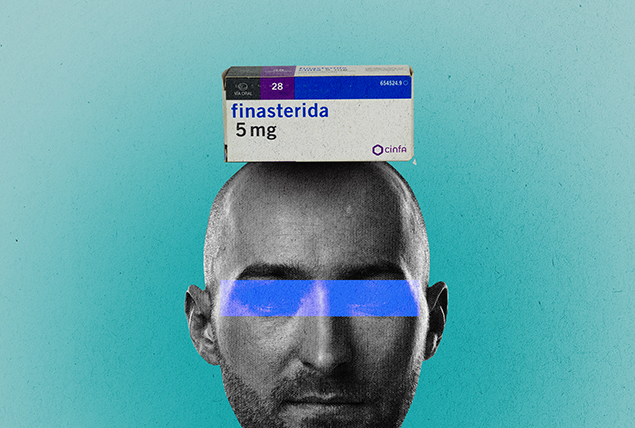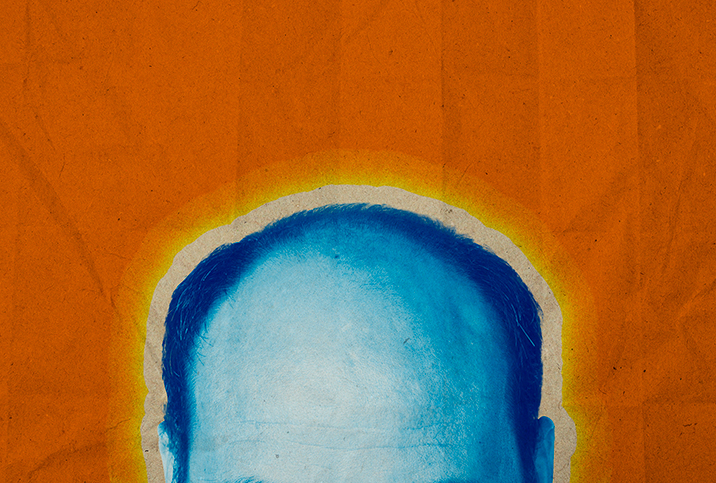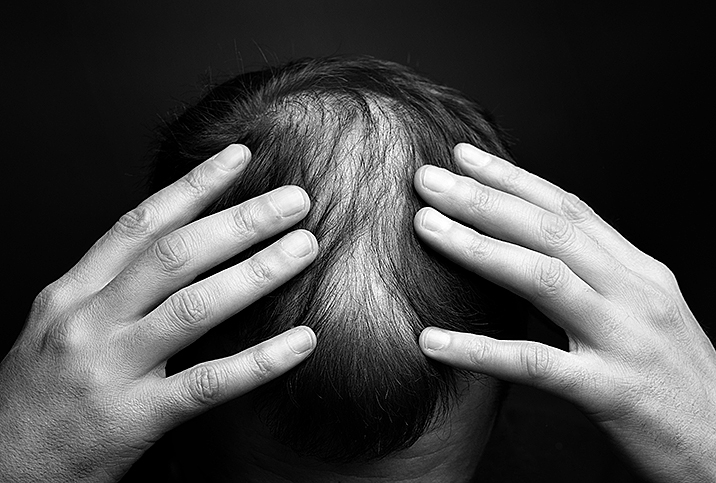Are the Effects of Post-Finasteride Syndrome Causing Sex, ED or Libido Issues?

A 51-year-old airline pilot based in Denver received a finasteride prescription for hair loss nearly 20 years ago. He was 32 at the time.
"You hear about all the side effects, but you kind of blow them off," said the pilot, who asked that his name not be used. "At the time, and now, I'm a healthy male with no underlying health conditions, so I certainly didn't have any worry, and nobody ever thinks of side effects as permanent."
Some men claim the side effects of finasteride can be permanent, or at least long term. This has become known by some as post-finasteride syndrome (PFS). The clinical acceptance of PFS is spotty, as is its documentation. It is rare, poorly understood and marked by persistent effects on sex stemming from physical and psychological issues, according to people who have experienced it and/or accept it as an acknowledged diagnosis.
Those side effects are recognized as possibilities for men taking finasteride, so the fact they occur isn't surprising. The surprise is that those effects can be long-term, even after a man stops taking the drug.
According to research from the manufacturer of finasteride, Merck, "resolution [of sexual adverse experiences] occurred in men who discontinued therapy with [finasteride 1 mg] due to these [sexual] side effects and in most of those who continued therapy."
Finasteride was first approved by the U.S. Food and Drug Administration (FDA) in 1992 for the treatment of benign prostatic hyperplasia (BPH), and then approved again in 1997 for male pattern hair loss. Since then, study findings have been inconsistent as to the long-term effects of finasteride on sexual health.
Anecdotal evidence of post-finasteride syndrome in men
Since taking finasteride for only a few months in 2004, the pilot said he's had no libido, or sex drive. He also said he experiences difficulty maintaining an erection and reaching orgasm during sex.
It's as if his brain is not connecting to his penis. His sexual desire has been on a slow, downward trajectory since the rapid drop-off when he quit taking the drug. He's been in a relationship for the past five years and has been able to orgasm only about five times from intercourse.
"In my past, having sex was a long process," he said. "It takes a long time because you enjoy it so much. You want it to last forever."
But now, the pilot said he doesn't have any interest in sex, other than to share as much as he can with his partner.
"As soon as she is satisfied 20 minutes in, there's no reason to go an hour," he said. "The only way it's satisfying for me is I'm making her feel good."
When he first noticed the sexual dysfunction, he didn't know what was going on. He saw a variety of doctors, including general practitioners, urologists, endocrinologists and sex therapists. They ran tests and checked his testosterone levels. Everything came back normal.
One weekend in 2012, while searching the web for answers, he ran across information on PFS, calling it an epiphany.
According to a 2017 study, 1.4 percent of men between the ages 16 and 42 who took finasteride for 206 days or longer and had no history of sexual dysfunction developed erectile dysfunction (ED) that lasted, on average, 4.2 years after they quit the medication.
Among the pilot's frustrations is that the condition is largely unknown. Many doctors either have never heard of PFS or don't think it's real. Numerous self-reports of PFS exist, but there is a dearth of large clinical studies on the condition.
Many people in the medical community, in the absence of large clinical studies with repeatable findings, do not recognize PFS as a real, serious medical condition.
Today, the pilot is planning to see psychotherapists and sexual medicine clinicians in hopes they can help him resolve his sexual dysfunction.
What are post-finasteride syndrome's effects on sex?
Finasteride is a 5-alpha-reductase inhibitor that blocks the conversion of testosterone to dihydrotestosterone (DHT), a hormone responsible for male sexual development. Unlike testosterone, DHT does not play a key role in maintaining physiology throughout adulthood. Its effects largely include enlargement of the prostate and male pattern hair loss.
Therefore, when finasteride reduces DHT in the bloodstream, it causes the prostate to shrink and reduces hair loss.
Men taking finasteride for hair loss are typically prescribed a 1-milligram dose (typically sold under the brand name Propecia), whereas men taking it for enlarged prostate take 5 mg (typically sold under the brand name Proscar). Enlarged prostate, or benign prostatic hyperplasia, is very common in older men. However, most men who have made claims of suffering from PFS are younger men using the medication for hair loss.
"You're growing hair but eliminating a very important hormone," said Irwin Goldstein, M.D., a urologist who said he has evaluated hundreds of potential PFS patients since opening San Diego Sexual Medicine in 2007. "Erectile dysfunction is a consequence."
DHT is an important fuel to the smooth muscle cells that live in the penis, according to Goldstein. When finasteride cuts off this fuel, the smooth cells eventually die. This leads to scar tissue that permanently changes the architecture of the penis and can cause adverse sexual side effects.
Goldstein said in the most extreme cases, the drug is essentially making 20-year-old men have the erectile function of 70-year-olds.
ED is just one of the potential sexual side effects. A series of biochemical events inhibited by finasteride may reduce important brain neurochemicals that are involved in libido, Goldstein explained.
"There are numerous substrate product reactions that are inhibited, and many of them can be playing a role not only in libido but on cognitive and mood issues, which are concomitant for the sexual dysfunction," he said.
Some men have reported depression, anxiety and even suicidal thoughts, according to the Post-Finasteride Syndrome Foundation, a nonprofit group that promotes scientific and clinical research of PFS.
Goldstein has also observed reduced penile sensation in men suspected of having PFS. The reason for this isn't completely understood, he said, but he thinks it relates to the chemicals in the brain that are not present because of finasteride.
"It may be that there is nerve damage peripherally," he said. "Another thing is the intensity and ease of getting an orgasm is way off."
Low DHT is not a problem for most men.
"But for a group of people, it certainly [is], and it changes their lives forever," Goldstein said.
Treatment for men with PFS
When PFS patients come to Goldstein's highly specialized office, it's a minimum three-hour visit. They spend an hour with a sex therapist, have blood tests done, undergo neurological testing and receive a penile duplex Doppler ultrasound.
If Goldstein identifies excess scarring in the tissue and changed erectile function through the ultrasound, he often prescribes phosphodiesterase type 5 (PDE5) inhibitors such as sildenafil (Viagra) and tadalafil (Cialis). If oral medications are ineffective, he explores other ED treatments, such as penile injections.
One of the newest ED treatments on the market is Eddie®, an FDA-registered Class II medical device designed to treat erectile dysfunction and improve male sexual performance. Eddie is a safe treatment that does not have the negative side effects of prescription pills and doesn't require an injection or a prescription. Its urologist-designed features leave the arteries unencumbered so blood can flow in but impinge the veins so blood can't flow out.
Goldstein also gets involved in hormone treatment as needed, specifically to raise DHT.
"Another thing we do is provide patients with central nervous system medications that are FDA-approved for women, and we use them off-label for men," he said. "They are agents that can raise dopamine and help with orgasm, sensation and libido."
For cognitive changes, Goldstein finds that Adderall, a drug used for attention-deficit disorder, can be used off-label for PFS.
"It can give patients the ability to focus and concentrate, whereas they've lost that," he said. "For many patients, that's huge. Sometimes the ability to focus and concentrate is very appropriate for libido."
After the visit, there are follow-up blood tests and phone calls to see how the patients are doing.
Goldstein claims this "biopsychosocial strategy" has helped more than two-thirds of PFS patients improve their sex lives and overall quality of life.
"We don't return them back to their pre-finasteride state," he said. "We give them hope and we give them strategies to work with lifelong problems."
Men are 'often right' when it comes to PFS
Laurence Levine, M.D., a professor of urology at Rush University Medical Center in Chicago, frequently prescribes a 5-mg daily dose of finasteride to older men who have an enlarged prostate and are having bothersome urinary symptoms but don't want to undergo surgery.
Of the men he treats in their 50s and older, he estimates 20 percent to 30 percent report diminished libido.
"But the great, great majority of those guys, once they stop the finasteride, will find that their libido returns to baseline," he said. "That's different than post-finasteride syndrome."
Since 2012, more than 3,000 men have contacted the PFS Foundation, reporting a wide range of side effects. Based on the response the foundation has received—it is not a scientific collection of data—men in their teens, 20s and 30s are most susceptible to PFS.
The data for a tangible link between exposure to finasteride and a long-term complication is currently unconvincing, according to Martin Kathrins, M.D., an assistant professor of surgery at Harvard Medical School and a urologist at Brigham and Women's Hospital in Boston. However, Kathrins said the anecdotal experiences of individual men cannot be ignored.
"We do tend to rely on larger studies," he said. "It's hard to know what the truth is. We take each man and listen to his experience and have empathy."
Kathrins is interested in reading future studies on PFS and treatment options. He said he's always willing to listen to a man's perception of any potential harm from finasteride.
"I've learned through painful experience that you've got to listen to your patients," he said. "They're often right."


















